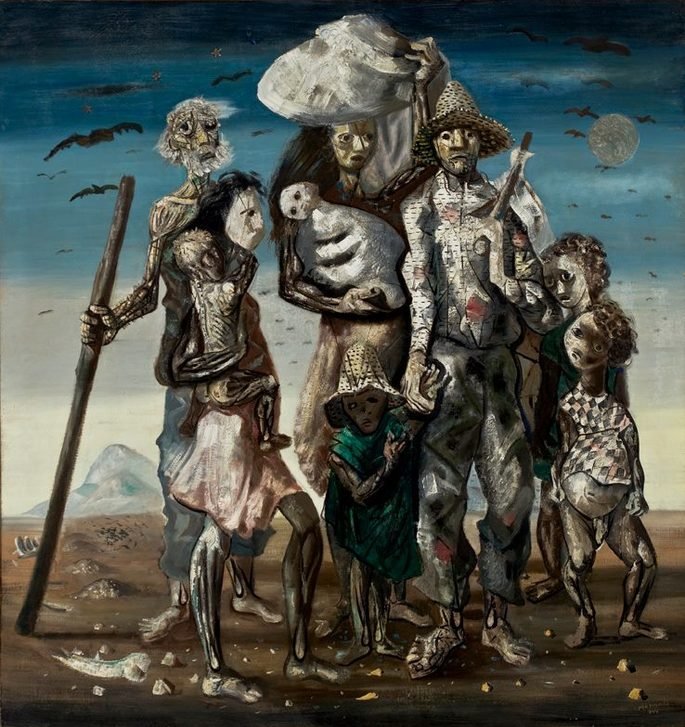All content tagged with: International
Filter
Post List
Unraveling the International Law of Colonialism: Lessons From Australia and the United States
In the 1823 decision of Johnson v. M’Intosh, Chief Justice John Marshall formulated the international law of colonialism. Known as the Doctrine of Discovery, Marshall’s opinion drew on the practices of European nations during the Age of Exploration to legitimize European acquisition of territory owned and occupied by Indigenous peoples. Two centuries later, Johnson—and the international law of colonialism—remains good law throughout the world. In this Article we examine how the Doctrine of Discovery was adapted and applied in Australia and the United States. As Indigenous peoples continue to press for a re-examination of their relationships with governments, we also consider whether and how the international law of colonialism has been mitigated or unraveled in these two countries. While we find that the Doctrine lingers, close examination provides several important lessons for all Indigenous nations and governments burdened by colonization.Africana Legal Studies: A New Theoretical Approach to Law & Protocol
“African people have produced the same general types of institutions for understanding and ordering their worlds as every other group of human beings. Though this should be obvious, the fact that we must go to great lengths to recognize and then demonstrate it speaks to the potent and invisible effect of the enslavement and colonization of African people over the last 500 years.” – Greg Carr
International Tax Law and the Legacy of Colonialism
By: Madelyn Hughes, Associate Editor, Vol. 27 During the 1884 Berlin Conference, European powers including Britain, France, Spain, and Belgium met to carve up the African continent to create colonies in what was known as the “Scramble for Africa.”[i] For decades after this conference, African countries were stripped…
Race and Human Trafficking
By: Shelly Feldman, Associate Editor, Vol. 27 One of the most pressing global challenges is human trafficking. Human trafficking is defined as “a crime whereby traffickers exploit and profit at the expense of adults and children by compelling them to perform labor or commercial sex.”[i] Former President of…The World of Private Terrorism Litigation
Since 9/11, private litigants have been important players in the “fight” against terrorism. Using several federal tort statutes, these plaintiffs have sued foreign states as well as other parties, like non-governmental charities, financial institutions, and social media companies, for terrorism-related activities. While these private suits are meant to address injuries suffered by plaintiffs or their loved ones, they often reinforce and reflect the U.S. government’s terrorism-related policies, including the racial and religious discrimination endemic to them. Indeed, much like the U.S. government’s criminal prosecutions for terrorism-related activities, private terrorism suits disproportionately implicate Muslim and/or Arab individuals and entities while reinforcing the belief that those groups are predisposed to engage in or support terrorism. This short Article provides a brief overview of the world of private terrorism litigation. It begins by describing the various federal tort statutes on terrorism—including their fraught relationship with foundational tort law norms. It explains the connection between those laws and the U.S. government’s terrorism prosecutions, as well as its other terrorism-related priorities. It ends by demonstrating how private terrorism suits reinforce discrimination and prejudice against Arabs and Muslims that are reflected in criminal terrorism prosecutions. In focusing on private terrorism litigation, this Article highlights how private parties are furthering the government’s counterterrorism work, as well as how private terrorism suits reinforce the state’s endemic discrimination against Arabs and Muslims in the counterterrorism realm.American Informant
Part of my childhood was spent in Baghdad, Iraq, during the rule of Saddam Hussein. At that time, the regime offered free and universal education and healthcare. Literacy rates in the country surpassed much of the Arabic-speaking world and, indeed, the Global South. As the celebrated Egyptian intellectual, Taha Hussein, famously put it: “Cairo writes; Beirut prints; and Baghdad reads.” Booksellers were everywhere in Baghdad. Its people read voraciously and passionately debated literature, poetry, and a range of other subjects. But what struck me, even as a child, was the absence of sustained talk about politics in bookshops, markets, and other public spaces. I knew that adults could not stay away from the topic of politics in more intimate, private settings, where a deeper level of trust usually reigned. Once you entered the public sphere, however, discretion about politics—and especially local politics—clearly became the better part of valor. Iraqi society had been so thoroughly infiltrated by elements of Hussein’s intelligence services that ordinary people knew to tread with extreme caution. After all, the person standing within earshot at a bustling Baghdad market, overhearing your conversation—or maybe even your direct interlocutor— could be an informant. And the stakes were high: incarceration, torture, or death. That was an early introduction to the valency of informants—their capacity to interact with the society that surrounds them and their distorting effect on it. The lesson has colored my subsequent work on surveillance, including this reflection on the contemporary role of informants in the United States.The Ban and its Enduring Bandwidth
This Essay is a contribution the Michigan Journal of Race & Law’s special issue marking the 20th anniversary of September 11, 2001 and the ensuing War on Terror. It reflects on Executive Order 13769, widely known as the “Muslim Ban,” years after it was signed into law, as an extra-legal catalyst of state-sponsored and private Islamophobia that unfolded outside of the United States.
Race and Blackness in Brazil
By: Thomas DesoutterAssociate Editor, Vol. 26 Brazil is a nation of 210 million people, sixty percent of whom are Black or multiracial. Many of the country’s most celebrated cultural traditions are rooted in the practices of Brazil’s enslaved people and their descendants. The most famous Brazilian of all time, the…
Repatriation and Restitution Required: Renovation of Belgium’s Royal Museum for Central Africa Falls Short
By Meredith Reynolds Associate Editor, Vol. 24 In December 2018, Belgium’s Royal Museum for Central Africa re-opened after a five-year renovation project.[1] The Royal Museum was originally created by Belgium’s King Leopold II in 1897 as a place for him to show off his colonial exploits.[2] The recent renovation aimed to transform the Royal Museum’s image as a monument to imperial conquest by adding contextualizing descriptions of Leopold’s brutality and incorporating some modern Congolese art.[3] Yet, it re-opened amid protests over its continued display of artifacts stolen from the region and its failure to erect a monument for the seven Congolese individuals who passed away after they were put on display at the museum.[4] As long as Belgium continues to claim ownership of stolen artifacts and reap the financial benefits of a museum with a more than one-hundred-year history of racist exploitation, its renovations cannot be considered truly transformative.Virtual Hatred: How Russia Tried to Start a Race War in the United States
During the 2016 U.S. presidential election, the Russian government engaged in a sophisticated strategy to influence the U.S. political system and manipulate American democracy. While most news reports have focused on the cyber-attacks aimed at Democratic Party leaders and possible contacts between Russian officials and the Trump presidential campaign, a more pernicious intervention took place. Throughout the campaign, Russian operatives created hundreds of fake personas on social media platforms and then posted thousands of advertisements and messages that sought to promote racial divisions in the United States. This was a coordinated propaganda effort. Some Facebook and Twitter posts denounced the Black Lives Matter movement and others condemned White nationalist groups. Some called for violence. To be clear, these were posts by fake personas created by Russian operatives. But their effects were real. The purpose of this strategy was to manipulate public opinion on racial issues and disrupt the political process. This Article examines Russia’s actions and considers whether they violate the international prohibitions against racial discrimination and hate speech.



